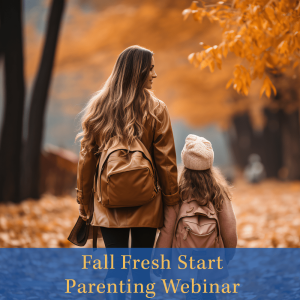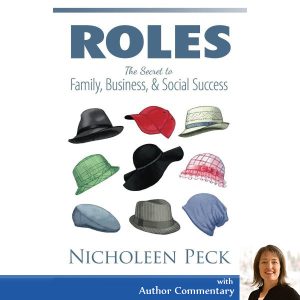Is Emotional Throw Up Healthy?
Years ago I read an article about a woman who thought her children needed to emotionally throw up from time to time in order to stay emotionally healthy. She wasn’t talking about real vomit from the stomach. She was talking about crying and screaming and emoting until the child ‘got it all out.’
A situation might go like this. The child was fed pancakes for breakfast but didn’t want pancakes so the child would cry. The parent would assume the child was overly hungry or still tired or just needed to get out some pent up emotions and so the parent would praise the child for letting go of the emotions.
Even though I have had times when I remember feeling great loss such as when a loved one died and I literally needed a little time to just let some emotions run, this type of emotional release described in the article didn’t strike me as healthy at all. In fact, it seemed unhealthy. It seemed like emotional bondage, not emotional control.
Each of us have times in our lives when we feel emotional. Recently, when my son left to live for two years in Japan I cried quite a bit. My love for him and my happiness for the situation combined with my sadness for the closing of a chapter of his life and the separation from him literally made my heart feel like it was breaking. Even though I knew it wasn’t bad to cry during this time I still knew that I couldn’t keep myself thinking about crying and I couldn’t keep feeding my emotions. I had to put new thoughts in my head and steer myself in a new, less emotional direction of thought in order to be free. I had to have control. I knew my will to be happy in the situation could overpower my emotions.
Emotions aren’t bad. They are part of us, but they should not ever be allowed to control us. I know this statement is easier said than done, and that some people have a more difficult battle with emotions than others. Many exceptions and special circumstances could be listed here. But, for this article I am going to dispense with listing all the exceptions and talk only about the dangers of giving too much power to our emotions. There are dangers for adults as well as dangers for children.
How Emotional Throw Up Hurts Us
The strongest part of our souls is our will. Our will is where our agency is rooted. The will is stronger than the body, as any runner knows. The will is stronger than the mind, as every doctor knows. The will is also stronger than emotion, as every hero knows. Heroes become heroes in classical stories, not just because they conquer the bad guy, but because they conquer themselves too. They fight their own fears and their feelings of inadequacy. Emotions hold us back, but the will moves us forward toward our purpose and freedom.
“Conquer thyself. Till thou hast done that, thou are a slave; for it is almost as well to be in subjection to another’s appetite as thine own.” – Burton
To teach a child that they have to follow their emotions and be subject to them is to fill the child’s life with disappointment, drama, weakness, and excuses. This is not freedom for the child. Children need to see themselves as strong and able to learn and achieve anything they put their minds to. When children don’t have the freedom to succeed, which comes from the freedom offered in knowing how to govern themselves, the children are often negative, unhappy, and often stop progressing. They become stuck in an emotional mess.
It used to be that when parents noticed a child had an emotional problem or was different in some way, the parent would work tirelessly to help the child free themselves from the impediment. All too often, in modern times parents and adults are seen labeling children with different problems and giving them excuses to fail. Parents are taking away purpose and possibilities from their children because they want a problem to be dealt with quickly by diagnosis instead of skill development. Diagnosis and excuses don’t really solve problems, even though they can add insight and comfort. Children need answers for how to control themselves while they are young or they will see life as a time of emotional bondage. They crave freedom from the problems, not excuses.
What Should We Do To Gain Control?
Even though it is popular to think that children need to be emotional in order to be healthy, this is not sound teaching. When a child is emotional they feel unsafe, and vulnerable. They feel like they are small and weak. Historically, healthy children see themselves as big and able. They climb things, jump over things, try things and fail over and over again without any thought. None of these moments are emotional.
So, how can a parent prepare a child to be happy no matter the disappointment, failure or drawback? The parent must deliberately teach the child skills designed to help with successfully controlling themselves, and the parent must not allow themselves to become emotionally charged over mistakes, disappointments, or failures either. Parents must be strong for their children. They need to practice skills for self mastery as well. If they don’t they will likely pass their burdens and drama on to their children. Children should not be burdened with adult stress and drama. These things will surely lead a child to emotional bondage through worry and trauma to their consciences.
There are many skills happy, productive people master. One of those skills, possibly the most important of the basic skills needed for happy living is the skill designed for accepting disappointment and failure; called accepting a no answer, or accepting criticism.
All successful people know that disappointment and failure are part of success. In fact, I have heard multiple very successful business and education mentors talk about how a successful person is never afraid of failure because they know the failures will teach them needed lessons for future successes. To master this skill means that when something doesn’t go our way, we would be able to be okay and say “okay”, drop the subject and then move on. We would have the tone of calmness and acceptance.
For children it looks like this. For breakfast, I give my child a bowl of cereal that he doesn’t really like. Instead of choosing to whine or complain the child would calmly notice that they have been given a cereal they don’t prefer. They would tell themselves it wasn’t a big deal and happily eat it anyway. Or they would use another essential skill called disagreeing appropriately and calmly talk to their parent about the situation with a heart willing to accept the answer of the parent, no matter if it is a yes answer or a no answer.
Parents can also learn self-control in these situations by knowing what skills the child needs and proactively teaching the child the skills before the situation occurs and by preparing each day to accept no answers too.
Sometimes the children don’t behave correctly or things don’t go right. We have to use our wills to be calm and say “okay” too. Then we have to accept the disappointment, failure or no answer and move on.
There is no need to emotionally vomit all over each other. Even if the action did some how make a person more free, the person who was vomited on would not be free. Anarchy never brought a national government freedom, and by comparision leading with emotions never brought a personal or individual self-government freedom either. All people want freedom from oppression. Emotions can and do oppress. They are amazing, complicated parts of who we are, but they are not meant to lead us.
Nicholeen’s books and courses share skills with families that they need to better learn self-government. She even has children’s books to make teaching children more fun too. https://teachingselfgovernment.com





